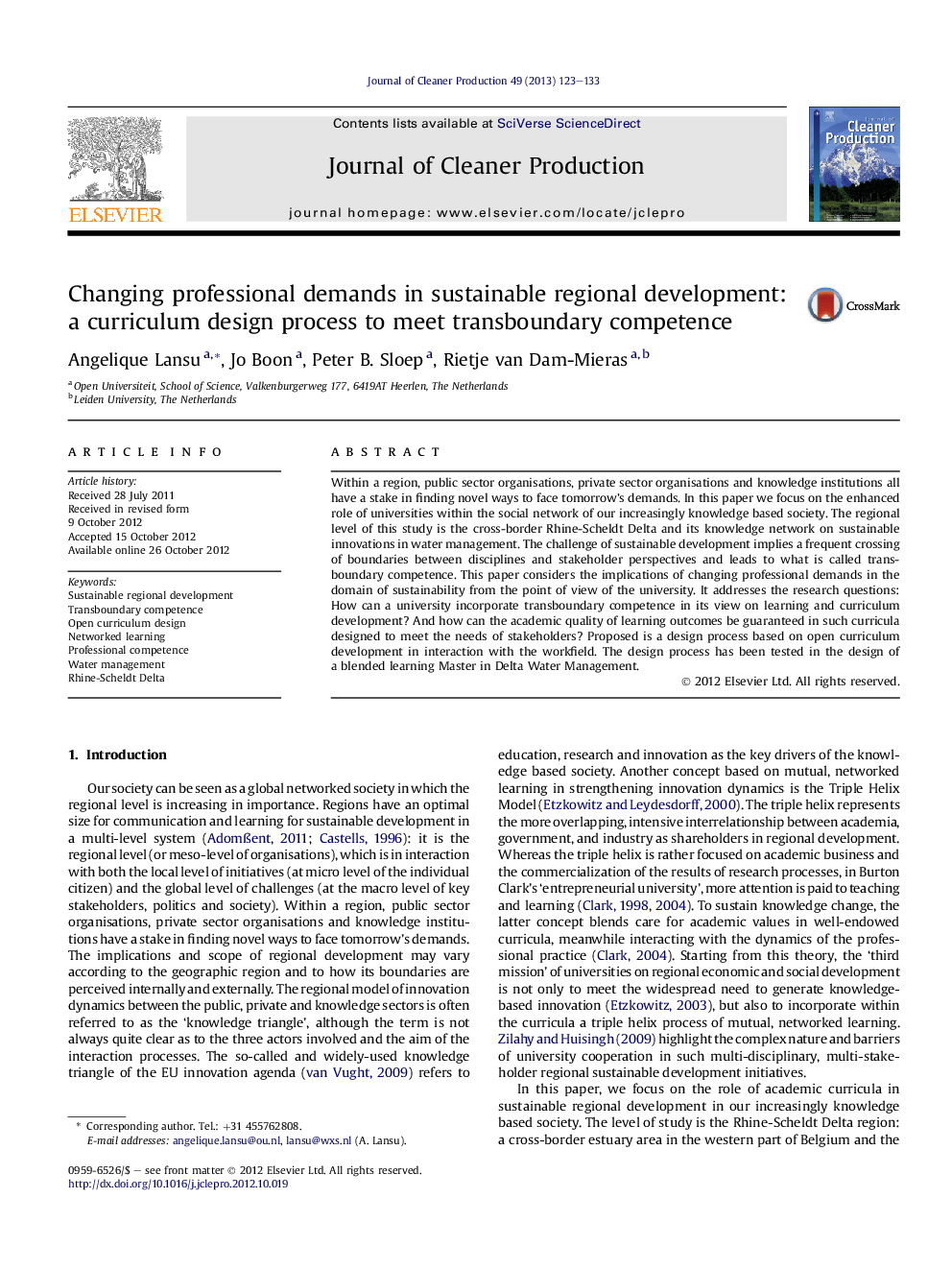| Article ID | Journal | Published Year | Pages | File Type |
|---|---|---|---|---|
| 1745387 | Journal of Cleaner Production | 2013 | 11 Pages |
Within a region, public sector organisations, private sector organisations and knowledge institutions all have a stake in finding novel ways to face tomorrow's demands. In this paper we focus on the enhanced role of universities within the social network of our increasingly knowledge based society. The regional level of this study is the cross-border Rhine-Scheldt Delta and its knowledge network on sustainable innovations in water management. The challenge of sustainable development implies a frequent crossing of boundaries between disciplines and stakeholder perspectives and leads to what is called transboundary competence. This paper considers the implications of changing professional demands in the domain of sustainability from the point of view of the university. It addresses the research questions: How can a university incorporate transboundary competence in its view on learning and curriculum development? And how can the academic quality of learning outcomes be guaranteed in such curricula designed to meet the needs of stakeholders? Proposed is a design process based on open curriculum development in interaction with the workfield. The design process has been tested in the design of a blended learning Master in Delta Water Management.
► Regional development asks for a process of mutual, networked learning among all actors. ► Transboundary competence is expected to contribute to lifelong learning networks. ► The design process helps to fit changing professional demands into the academia. ► Rhine-Scheldt Delta innovations integrated in academic sustainability curricula. ► Knowledge transfer on regional sustainability is embedded within the curriculum.
